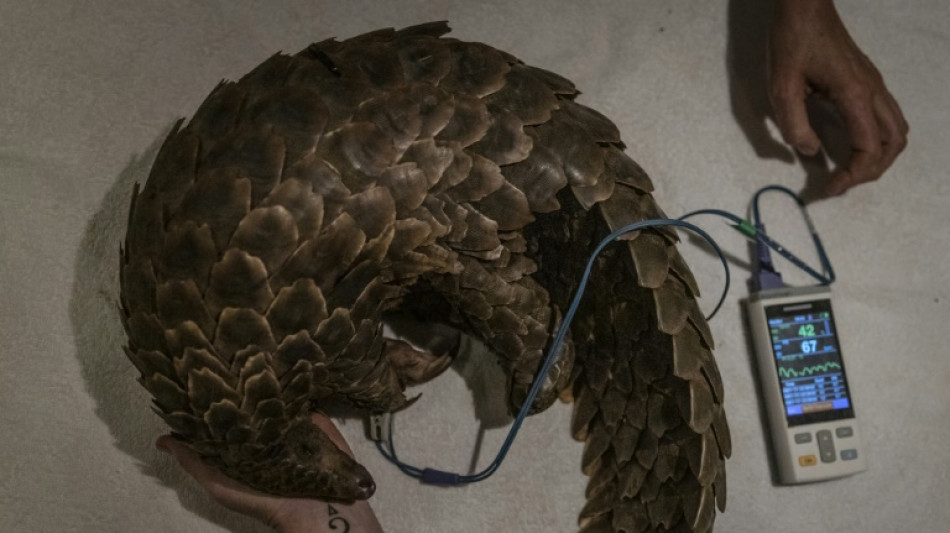
-
 Stocks mixed after Nvidia record earnings
Stocks mixed after Nvidia record earnings
-
Actor Micheal Ward in UK court on rape charges

-
 EU summons Russian envoy after mission damaged in Kyiv strike
EU summons Russian envoy after mission damaged in Kyiv strike
-
Deadly Russian attack kills 15 in Kyiv, raising fears for peace talks

-
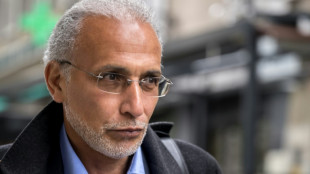 Swiss court rejects Islamic scholar Ramadan's rape conviction appeal
Swiss court rejects Islamic scholar Ramadan's rape conviction appeal
-
Russian attack kills 14 in Kyiv, including three children

-
 Swiss economy set to slow due to US tariffs
Swiss economy set to slow due to US tariffs
-
Hong Kong media mogul Jimmy Lai verdict to come 'in good time': judge
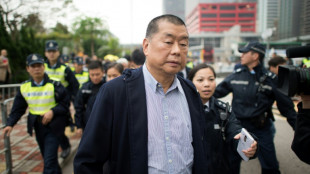
-
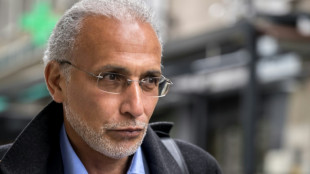 Swiss court rejects Tariq Ramadan rape conviction appeal
Swiss court rejects Tariq Ramadan rape conviction appeal
-
Asian markets mixed after Nvidia earnings

-
 Rising Australian golfer makes comeback after losing sight in left eye
Rising Australian golfer makes comeback after losing sight in left eye
-
Scandal facing sister of Argentina's president: 3 things to know

-
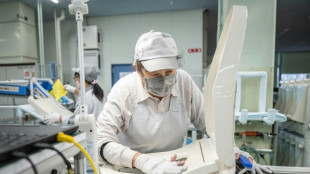 Need a pee? Japan has QR code for that
Need a pee? Japan has QR code for that
-
Five things to know about Guyana
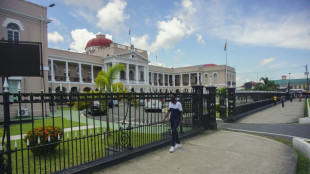
-
 Guyana, emerging oil superpower, elects new leaders
Guyana, emerging oil superpower, elects new leaders
-
Nigerian designer pushes 'Afro-lux' onto the global fashion scene
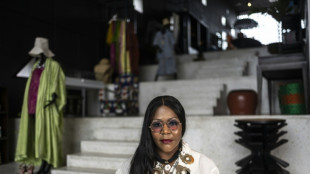
-
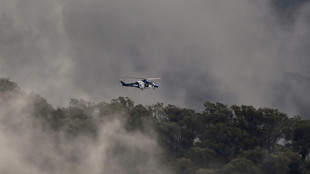 Gunman still at large after Australian police killings
Gunman still at large after Australian police killings
-
Norway, environmentalists back in court over oil field permits

-
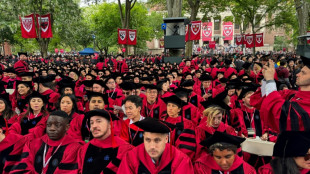 Trump moves to limit US stays of students, journalists
Trump moves to limit US stays of students, journalists
-
Attack and never give up: Inside Japan's deadly boxing scene

-
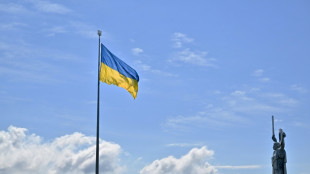 Russia hits Kyiv with 'massive' deadly overnight strikes
Russia hits Kyiv with 'massive' deadly overnight strikes
-
Injury-hit Wallabies welcome back Alaalatoa for Argentina Tests
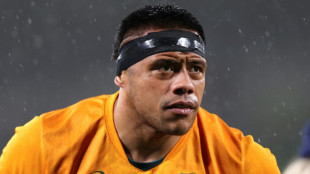
-
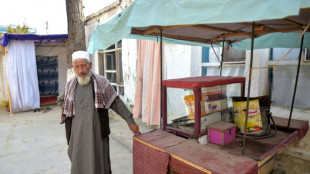 Long-awaited pension payments relief for Afghan retirees
Long-awaited pension payments relief for Afghan retirees
-
Chivu's Inter turning the page on Champions League humiliation

-
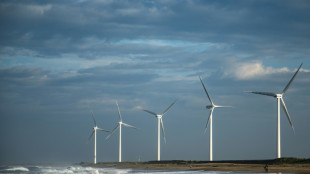 Japan confident on wind power after Mitsubishi blow
Japan confident on wind power after Mitsubishi blow
-
Hamburg host derby rivals St Pauli in German top-flight reunion

-
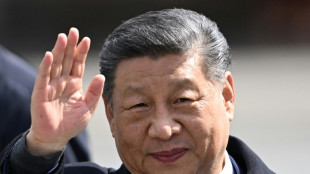 China to bolster non-Western alliances at summit, parade
China to bolster non-Western alliances at summit, parade
-
Climate-driven wildfires reversing pollution progress in N. America: study

-
 Sabalenka eyes Fernandez revenge in US Open third round
Sabalenka eyes Fernandez revenge in US Open third round
-
White House fires US health agency head after she refused to quit

-
 Super Rugby to mark 30th anniversary with tweaks to finals format
Super Rugby to mark 30th anniversary with tweaks to finals format
-
Messi brace puts Miami into Leagues Cup final

-
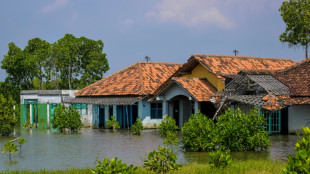 Can a giant seawall save Indonesia's disappearing coast?
Can a giant seawall save Indonesia's disappearing coast?
-
Motive probed for US shooting that killed two children, injured 17

-
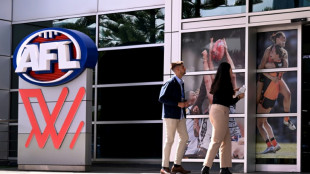 Bisexual ex-Australian Rules player praised for 'courage and bravery'
Bisexual ex-Australian Rules player praised for 'courage and bravery'
-
South Korea to ban mobile phones in school classrooms

-
 Alcaraz banishes US Open demons to reach third round
Alcaraz banishes US Open demons to reach third round
-
Kipchoge feeling the pressure ahead of Sydney Marathon
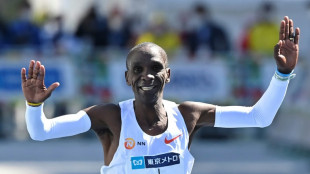
-
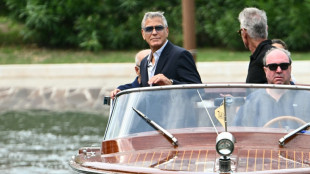 Clooney and Netflix team up for Venice festival spotlight
Clooney and Netflix team up for Venice festival spotlight
-
Trump stamps 'dictator chic' on Washington

-
 UN Security Council to decide fate of peacekeeper mandate in Lebanon
UN Security Council to decide fate of peacekeeper mandate in Lebanon
-
Alcaraz sprints into US Open third round as Djokovic advances

-
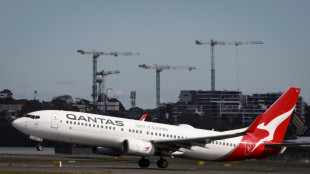 Qantas says profits up, strong travel demand ahead
Qantas says profits up, strong travel demand ahead
-
'Perfect storm': UK fishermen reel from octopus invasion
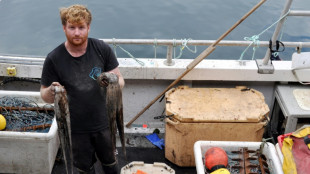
-
 Alcaraz crushes Bellucci to reach US Open third round
Alcaraz crushes Bellucci to reach US Open third round
-
Townsend reveals Ostapenko 'no class' jibe after US Open exit

-
 Israel ups pressure on Gaza City as Trump talks post-war plan
Israel ups pressure on Gaza City as Trump talks post-war plan
-
NATO says all countries to finally hit 2-percent spending goal

-
 Rangers humiliated, Benfica deny Mourinho's Fenerbahce Champions League place
Rangers humiliated, Benfica deny Mourinho's Fenerbahce Champions League place
-
AI giant Nvidia beats earnings expectations but shares fall


Endangered pangolins get fresh chance in S.African clinic
The hospital room is air-cooled to feel like a pangolin's burrow. The patient, Lumbi, is syringe-fed with a protein-packed smoothie, given a daily dose of medicine and has his vital signs checked.
Lumbi is being treated for a blood parasite after he was rescued from traffickers during a police sting in South Africa's northern Limpopo province late last year.
He and several other pangolins in the room are patients of Johannesburg Wildlife Veterinary Hospital, founded in 2016 to treat and rehabilitate indigenous wildlife.
They were confiscated from poachers in South Africa and neighbouring countries, including Namibia, Mozambique and Zimbabwe.
Many pangolins are in a horrendous state when they are rescued and need of medical care, after being kept in sacks and car boots for weeks with no food or water.
"It's like an ICU (intensive care unit) for pangolins," said Nicci Wright, the wildlife rehabilitation specialist attending to Lumbi.
The pangolins are kept at a secret site during treatment, which takes anything from weeks to months, before they can be released back into the wild.
Although pangolins have existed for around 80 million years, medically little is known about them.
- Pangolins 'are like people' -
"They are so different to other animals. They really are," said Wright, who has been working with pangolins since 2008.
Sometimes vets have to fiddle with various treatment regimes to provide the appropriate medication.
"The actual veterinary medicine and rehabilitation process hasn't been well documented and very little is actually know about the African species," said Wright.
Vets administer standard treatments used on other mammals such as cats and dogs. Often they work.
"Sometimes to you just have to take a chance, and so far we have taken chances and we have been very successful and they have responded very well," said vet Kelsey Skinner.
"It's just a leap of faith every time you try something," said Skinner, 30, after giving Lumbi his daily dose of meds.
Having cared for sick pangolins for several years, Skinner discovered that, like people, they have different personalities.
The scaly-skinned, insect-eating mammals are solitary, nocturnal animals.
"They are like people. They have just the most unique little personalities.
"Some of them are shy. They don't want to be touched. Others are very out there and play a lot in the mud. They are comedians," she said.
"The level of personalities is like dealing with a whole lot of different people. Everyone is just so unique."
- The most trafficked mammals -
Pangolins are believed to be the most trafficked mammals on earth. They're prized for their scales -- made of keratin, like human nails -- which are used in Asia for their supposed medicinal properties.
Only found in the wild in Asia and Africa, their numbers are plummeting under pressure from poaching. Some species are listed by wildlife watchdogs as critically endangered.
It's not known how many pangolins are left on the planet.
The ward that now cares for Lumbi was also home, until recently, to a pangolin named Steve. Last month, Steve was released back into the wild, where he belongs, after making a full recovery.
Gareth Thomas is a volunteer pangolin walker who walked Steve weekly during the seven months of preparation for his release.
"I've been with him since day one. I was there when he got pulled out of the box from the poachers," he said during one of their final walks before the release.
After a six-hour drive, Steve was set free into the vast 23,000-hectare Manyoni Game Reserve in southern KwaZulu-Natal province.
Pangolin monitor Donald Davies from Zululand Conservation Trust offloaded a specially designed crate from the van, with Steve inside and opened it.
With two telemetry devices attached to his scales, the pangolin cautiously stepped out, sniffing around and casually walking away to find ants for an afternoon grub.
"He has all the skills he needs to survive in the wild now," said Davies.
Freeing them into the wild is a crucial process to ensure the endangered mammals survive after the huge investment poured into their treatment and rehabilitation.
"The release process is one of the most important, because it has to be done correctly," said Wright.
The gentle creatures can only be released into a relatively safe area, such as a well-patrolled private game reserve, to avoid them falling into the poachers' clutches again.
And, in addition, the habitat has to be right. "We need to be absolutely sure they are finding the right food, they are finding the burrows. Otherwise they will simply die".
B.Shevchenko--BTB
